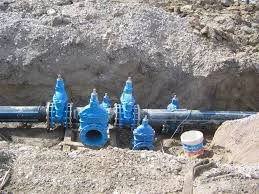Dec . 20, 2024 10:03 Back to list
ppr hot water pipe
Understanding PPR Hot Water Pipes Benefits and Applications
In modern plumbing systems, the choice of materials is crucial for ensuring durability, efficiency, and safety in transporting hot water. Among the various options available, Polypropylene Random Copolymer (PPR) pipes have emerged as a popular choice for hot water applications. These pipes are known for their strong physical properties, resistance to thermal degradation, and overall cost-effectiveness, making them ideal for both residential and industrial use. This article will explore the characteristics, benefits, and applications of PPR hot water pipes.
What is PPR?
PPR stands for Polypropylene Random Copolymer, a type of thermoplastic polymer that offers impressive mechanical properties and excellent resistance to heat and chemicals. Due to its unique molecular structure, PPR possesses a high level of flexibility and can withstand pressures ranging from 6 to 25 bars, depending on the pipe's diameter and thickness. This makes it suitable for various applications, including hot and cold water supply systems, heating systems, and even industrial environments.
Key Benefits of PPR Hot Water Pipes
1. High Temperature and Pressure Resistance One of the most significant advantages of PPR pipes is their ability to handle high temperatures—up to 95°C (203°F) for prolonged periods. This characteristic makes them ideal for transporting hot water in residential and commercial plumbing systems. Additionally, their high-pressure tolerance ensures that they can handle the demands of heating systems without risk of failure.
2. Corrosion Resistance Unlike metal pipes that are prone to corrosion, PPR pipes are chemically inert, meaning they won’t rust or corrode over time. This quality enhances their longevity, reducing the need for frequent replacements and maintenance.
3. Energy Efficiency PPR hot water pipes exhibit low thermal conductivity, which minimizes heat loss during water transport. This energy efficiency translates into lower utility bills as less energy is required to maintain water temperatures. This feature is especially beneficial in underfloor heating systems.
4. Ease of Installation PPR pipes are lightweight, making them easier to handle and install compared to traditional piping materials such as steel or copper. Their fusion welding process simplifies the connection, creating leak-proof joints that enhance the system's integrity.
ppr hot water pipe

5. Environmentally Friendly PPR is recyclable and does not release harmful substances when used. This eco-friendliness makes PPR pipes an excellent choice for environmentally-conscious builders and homeowners.
Applications of PPR Hot Water Pipes
PPR hot water pipes find extensive applications across various sectors
- Residential Plumbing In homes, PPR pipes are commonly used for hot water distribution from boilers to bathroom and kitchen fixtures. Their resistance to scaling and deposits makes them a reliable choice for long-term usage.
- Industrial Use Many industries rely on PPR pipes for transporting hot water in process lines, especially where chemical resistance is essential. Their robust nature allows them to withstand the rigors of manufacturing processes.
- Heating Systems PPR pipes are widely used in heating systems, including underfloor heating and radiator installations. Their ability to retain heat effectively ensures comfort in residential and commercial spaces.
- Renewable Energy Systems PPR pipes are increasingly being utilized in solar thermal systems, where they transport heated water generated from solar panels to storage tanks or points of use.
Conclusion
In summary, PPR hot water pipes present a reliable, efficient, and environmentally-friendly solution for various plumbing needs. Their durability, resistance to corrosion, and ease of installation make them an attractive option for both new constructions and renovations. As the world continues to shift toward sustainable building practices, the demand for PPR piping systems is expected to increase, solidifying their place as a cornerstone in modern plumbing. Whether for residential or industrial applications, choosing PPR hot water pipes ensures a smart investment in the infrastructure of any building.
-
Durable PP Rigid Sheet: Lightweight, Chemical Resistant Solutions
NewsAug.21,2025
-
PVC Grey Sheet for Extraction: Chemical Resistant & Durable
NewsAug.19,2025
-
Durable PVC Pipe Fittings for Plumbing & Irrigation Needs
NewsAug.18,2025
-
HDPE Steel Belt Reinforced Spiral Corrugated Pipe | High Strength
NewsAug.17,2025
-
HDPE Pipe Fittings: Durable, Leak-Proof Solutions
NewsAug.16,2025
-
Premium CPVC Sheet: High-Temp & Chemical Resistant Solutions
NewsAug.15,2025

